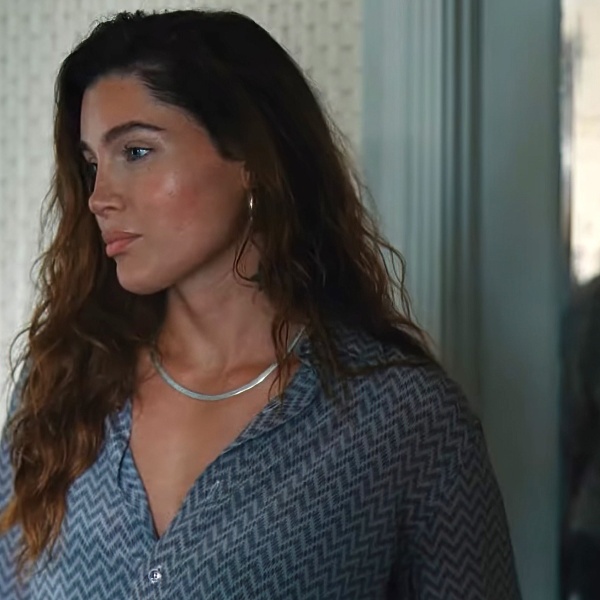
It’s hard to believe that this is the first year a Joe Swanberg joint found its way to Park City. Festival circuits tend to consume these micro-indies like they’ll expire the next morning, so why hasn’t one of the godfathers of the movement received an invitation until now? The same goes for fellow “leader” Andrew Bujalski and another very talented colleague Aaron Katz. If there’s room for terrible lot like the pre-“Carey Mulligan” Carey Mulligan sap-drama “The Greatest” and barely mediocre “Holy Rollers,” surely they could squeeze in one of these pint-sized features. They lack stars, but are a good representation of what’s going on in underground American film.
Don’t get us wrong: this relatively small yet popular movement doesn’t completely embody American independent cinema, and despite all of the overly positive quotes that the films usually come saran-wrapped in, it’s often a mixed bag. Swanberg’s past work was admittedly part of that, and even though the pictures held some charm and brutal truths they didn’t, as a whole, carry much impact. As a director, he has slowly honed his skill, delivering his best film to date, the emotional and experimental fidelity drama “Alexander the Last” in 2009. He was still tackling the subject of relationships, but he was doing so with different, fresh angles (the problem of separating one’s feelings from those of the characters being portrayed, etc) and experimental visuals. It was by no means brilliant, but definitely a step in the right direction and away from too-typical ramblings and shaky cam. “Uncle Kent” is another step towards something great but unfortunately finds the director’s main focus in overly familiar territory.
Cartoonist Kent (Kent Osborne, a Swanberg regular) leads a simple life which involves drawing, smoking weed, chat roulette, and hanging out with his cat. Things liven up when Kate (Jennifer Prediger), an attractive woman he met online, expresses interest in visiting for a weekend. He complies, hoping to go the whole way with her during her stay. There’s just one problem: she’s got a boyfriend.

Record scratch! You wouldn’t be the first to think that this synopsis sounded more in the vein of a teen-comedy flick than an American indie, but the director takes this a different route, as Kent isn’t a lost, quirky 20-something hipster — he’s pushing 40. This gives the entire movie (and every scene in it) a somber and hopeless glaze, evoking themes such as squandered opportunity and raising questions like whether or not certain habits are immature/pathetic because of age only. These are the interesting topics that are more than worth talking about, ones that might even have been good for Swanberg’s past characters to have had, before they found themselves in the deep end with no escape. He doesn’t shy away from the more comedic aspects of irresponsible adulthood, such as when Kent is begged (by his 20 year old friends) to show everyone some of his patented “cock-tricks.” He eventually does them and the embarrassment and reluctance to partake in these juvenile acts is uncomfortable, but the showcase of said tricks is pretty hilarious. The scene itself asks for a complex audience response: there’s the undertone of despair coupled with the discomfort of Kent in a tense and potentially embarrassing situation, all ending with a laugh at the amusing (and fairly impressive) penis antics. Its direction is very successful and delivers a wham-bam response.
Swanberg makes sure that the entire piece isn’t a depressing slog, so thankfully Kent is a relatively happy person with a good presence and the pacing only benefits from that. However, if there’s anything to really celebrate, it’s the abandonment of the excessive bad dialogue that usually populates this kind of film and the embrace of scenes devoid of yapping. One in particular finds our two protagonists scanning Kate’s digital camera, only to find nude photos of her that Kent “wasn’t supposed to see.” In one of his many uncomfortable attempts to woo her, he playfully jests that he should be able to see it again because he has already seen it once. She declines, and the next morning finds Kent stealing her camera, uploading the photo, deleting all pictures by accident, and finally submerging the camera into a glass of water to cover his tracks. This isn’t only a hilarious sequence, it’s one of the best he’s ever done and certainly shows that he’s got filmmaking chops that don’t have anything to do with needless talking.
Those two well-concocted scenes aside, everything is rather run-of-the-mill. For all of the strides Swanberg makes in content and form, he takes a severe step backward with his insistence in detailing relationship troubles and the obsession with technology. The majority of the narrative focuses less on Kent’s age and more on the present relationship with his guest. Anything related to his foginess either takes back seat to general relationship stuff or is merely relegated to an undertone, which is unfortunate because it’s the real hook of the movie. As far as technology goes, Kent frequently documents himself on his iPod which never feels like a real character trait or social critique, only forced. This constant examination of love, lust, internet conversations, and video taping everything has become so dry and boring that even a goofy threesome (in which Kate and a girl engage with Kent who is only able to fondle a foot) can’t breathe life into the tired subject. Swanberg fashions an interesting premise and protagonist, one that he should have led to different pastures rather than down the same old highway. Hell, make a movie about an automobile instead of a relationship.
At this point the audience is built-in and whatever anyone says about his movies, people are going to see it regardless. What’s to lose on a film that barely hits 70 minutes? Those who are mumblecore virgins (or at least new to Swanberg’s work) are likely to find this a great starting point, as it’s his funniest to date. We commend the director for taking a dip in new waters, but he’s only going to make a splash if he really jumps in. “Uncle Kent” remains a good effort but grievously finds itself buried in its own niche, too insistent that romantic/sexual relationships among a certain clique are absolutely fascinating. [B-]



